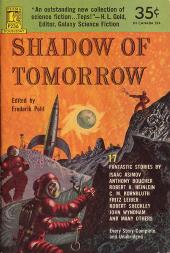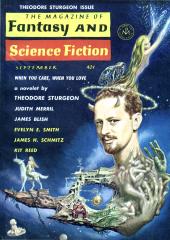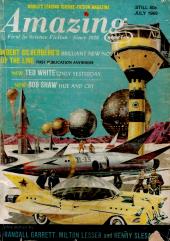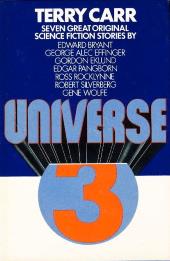Short Story
Common Time
- by James Blish
- in Shadow of Tomorrow, edited by Frederik Pohl (Permabooks, July 1953)
Spaceman Garrard is the third pilot to attempt the trip to the binary star system of Alpha Centauri using the FTL drive invented by Dolph Haertel (the next Einstein!) The Haertel Complex stories provide little in the way of actual time travel, but this one does have minor relativistic time dilation and more significant differing time rates. —Michael Main
Figuring backward brought him quickly to the equivalence he wanted: one second in ship time was two hours in Garrard time.








